Family Law Quebec [Complete Guide]
There are many places where we can find information relating to divorce and finding the right and most useful information may be daunting.
To help you in your divorce journey, whether you are looking for information or dealing with an actual divorce case in Court, our Divorce Lawyer’s Guide on Divorce is written just for you.
In this guide, we share with you useful legal knowledge, tips and resources so you can thoroughly understand all that you need to know about divorce.
In this guide, we will cover the following topics:
- Divorce
- Legal Separation
- Civil Union
- Marriage Annulment
- Separation Date
- Effects of Marriage
- Marriage Contract
- Common-Law Relationships
- Division of Property
- Spousal support
- Compensatory Allowance
- Parenting Rights and Parenting Orders
- Child Support
- Family mediation
- Hiring a Lawyer
1- Divorce

Divorce Act
In the Province of Quebec, the legal foundation of divorce is identical to all other Canadian Provinces.
In fact, in Canada, divorce is governed by the Divorce Act, a federal statute, applicable in all Canadian Provinces.
Thus, even though the Province of Quebec operates under a civil legal system as opposed to a common law system applicable in all other Canadian Provinces, the Divorce Act applies to all Provinces the same way.
Rules of procedure
The major difference in the area of divorce between Quebec and the rest of Canada is the actual rules of procedure applied by the Courts of each Province.
The rules of procedure are rules enacted by each Province governing the procedure, or the manner that a divorce application is filed in Court, the forms needed, the formalities of the legal proceedings from the start of the case all the way to the divorce trial.
Divorce Court Process
Each Canadian Province locally defines and enacts laws governing the divorce process.
In this context, each Province also regulates the manner a local Court will handle and process a divorce application either administratively or in a judicial manner.
In Quebec, a divorce case will follow different stages from the filing of a divorce application all the way to the rendering of a final and definitive divorce judgment.
Depending on the complexity and level of dispute between the divorcing parties, a divorce case can either skip certain steps and complete faster or, in other cases, every step of the case may be disputed and require the intervention of the Court.
Typical Court Stages
The typical Court process may involve one or many of the below events or stages:
- Divorce Court stages
- Notices to appear
- Divorce administrative delays
- Seizure before judgment
- Expertise and expert opinions
- Divorce trials and hearing on merits
- Appeal of a divorce judgment
- Modification of a divorce judgment
- Joint divorce application
2- Legal separation

What is legal separation?
Legal separation is formally called “separation from bed and board” as defined in the Civil Code of Quebec, article 493.
Legal separation is granted when the “will to share a community of life is gravely undermined” as stipulated in the Civil Code.
Consequences of legal separation
When the Court renders a legal separation judgment, the Court will settle all aspects of the separation of the couple.
In essence, the Court will ensure that the division of property is performed as required by law, the children’s interests are preserved, spousal support payments are considered and payable as needed and ensures the overall equity in the separation of the parties.
Legal separation grounds
You can demonstrate that your desire to live together is gravely undermined when:
- There is enough proof to show that the continuation of your marriage is no longer tolerable;
- At the time of filing for legal separation, you are living apart; or
- Either spouse has failed to respect his or her marital obligations
Filing of legal separation
Legal separation is a possible option if you are married to your spouse.
This means that this option is not possible for common-law couples or civil union couples.
Separation agreement
You are also able to submit an agreement settling all the consequences of your separation from bed and board without having to disclose any grounds.
This is interesting as it can allow you the legal possibility to file for a legal separation immediately upon separation.
3- Civil Union

What is a civil union?
Civil union is a legal regime allowing “two persons 18 years of age or over” to form a union and form a community of life.
In other words, same sex individuals can get “married” under the civil union regime as this regime is allows “two persons” to form a union.
A marriage, on the other hand, is between a man and a woman.
The civil union regime is governed by the Civil Code of Quebec, thus, a provincial legislation, articles 521.1 to 521.19.
Civil union obligations
Spouses in a civil union have the same rights and obligations and owe one another respect, fidelity, succour and assistance.
Civil union spouses also have the same obligation to cohabitate and share a community of life in the same way as married spouses.
Civil union contract
If couples enter into a civil union contract, they can select the matrimonial regime applicable to them.
If the couple does not fix their civil union regime upon union, then, the default matrimonial regime applicable to them is the regime of partnership of acquests.
4- Marriage annulment
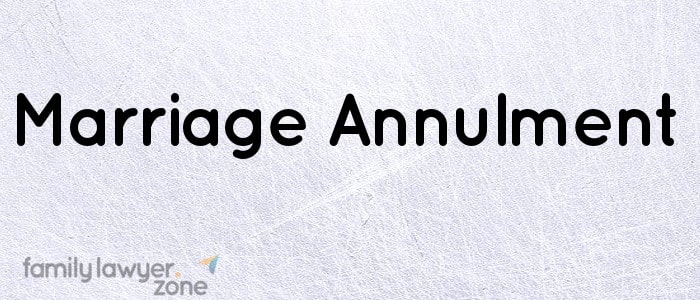
What is marriage annulment?
Marriage annulment is an exceptional remedy that may be appropriate if the validity of the marriage is at stake.
The difference between marriage annulment and divorce is mainly linked to the validity of the marriage itself as opposed to the consequences of a marital breakdown.
Examples of marriage annulment
A scenario where marriage annulment can be considered is if a spouse tricked another one to get married for the sole purpose of regularizing an immigration status.
Alternatively, annulment may be considered if a material fact underlying the marriage was misrepresented such as the other spouse did not know the true sex of the person when getting married.
Consequences of the annulment
When the Court declares a marriage null, it pretty much means that the Court does not recognize the validity of the marriage and the objective will be to put the couple back in their original states.
In other words, if a spouse had contributed money and property towards the marriage, then that spouse will be entitled to get back the contributions made.
Children’s rights
If the Court declares the marriage null, the rights of any child or children born as a result of this nullified marriage will be unaffected.
Under article 381 of the Civil Code of Quebec, the nullity of marriage does not deprive the children of the advantages secured to them by law or by marriage contract.
Spousal support
On the other hand, the nullity of marriage will extinguish the right of the spouses to claim spousal support, as dictated by article 389 of the Civil Code.
The Court will have discretion to award spousal support, even in a case of nullity of marriage and decide in an equitable manner.
The Court may also reserve a spouse’s right to claim spousal support in the future.
Legal delays
To file for the annulment of your marriage, you must do so within three years from the actual date of marriage.
5- Separation date

What is the separation date?
When you are married and decide to separate from your spouse, there is a point in time where you both agree to stop living together.
In other more typical scenarios, a spouse leaves the family home, in a definitive way.
The date where you can say that you and your spouse have stopped living together in a definitive and irreversible manner is your “separation date”.
Separating without getting a divorce
Can you separate from your spouse without legally filing for divorce or legal separation?
Yes, it is possible.
However, from a legal perspective, you remain married and remain subject to the rights and obligations stemming from your marital bond.
For instance, if there are debts that you incur for the benefit of the family, whether the debt is jointly held or by one spouse individually, you will remain solidarily responsible from a legal point of view.
In some cases, you may agree with your spouse on separation terms but without filing it in Court.
In such cases, if your spouse fails to comply with the terms of that agreement, you do not have any legal avenues to enforce the agreement.
For any legally enforceable agreement to be implemented, you must ensure that you have the Court ratify the agreement into a divorce judgment or a legal separation judgment.
Consequence of separation date
The separation date has a very important significance from a legal point of view.
In fact, when the Court renders a divorce judgment and divides the property of the couple, the division will take place as of the “separation date” upon demand by a spouse.
Typically, the Court must establish the value of the family assets as of the date when the divorce application is filed.
However, if this date does not adequately reflect the true market value of the property along with outstanding debt, a spouse may request that the Court use the separation date as cut-off as opposed to the filing date of the divorce application.
Example of use of separation date
For example, you separate from your spouse on July 1st of this year but the Court renders a divorce judgment only two years later.
During this two year period, after your separation date and before the divorce judgment, you and your spouse have moved on with your lives and have purchased other assets or even started a new relationship.
Typically the Court will not consider what was done after separate from the perspective of the division of your property.
As a result, the Court will look to see what you and your spouse owned as of your separation date, evaluate the total family assets and liabilities as of that date, and perform the division.
There are exceptions to the rule of course, what we outline above is the typical scenario.
6- Effects of Marriage

When married, spouses owe one another respect, fidelity, succour and assistance.
The spouses are also required to cohabitate and share a community of life.
The law also vests in the spouses the right and duty to together decide on the direction of the family and exercise of parental authority if there are children.
The spouses, when married, must also contribute towards the expenses of the marriage in proportion to their respective means which includes their activities within the home.
What’s notable under the law in Quebec is that a spouse that enters into a contract for the needs of the family also binds the other spouse.
In essence, when you get married, you have an obligation to decide as to the best interest of the family together, share the expenses and manage the children and all associated tasks together.
7- Marriage Contract

A marriage contract is a contract that a couple will sign that will govern the terms and conditions of a potential divorce.
A marriage contract must be notarized for it to be valid and can be signed prior or after your marriage.
Once signed, your notary will register your marriage contract under the register of personal and movable real rights (RPMRR) so to publicly disclose the existence of this contract.
If it is signed prior to your marriage, then it will take effect as of the date of your marriage.
If it is signed after your marriage, then it will take effect as of the day it is signed by the spouses.
A marriage contract will typically stipulate the matrimonial regime that the couple would want the Court to apply.
The matrimonial regimes can be either the partnership of acquests, separation as to property or community of property.
Also, the marriage contract can stipulate terms regarding gifts to be made to a spouse.
Gifts can be made to a spouse or children during your lifetime or death.
If a gift was granted in the event of death and not separation, the Court may cancel such gifts.
Gifts can also be made for during the lifetime of your spouse and thus the Court may cancel or reduce the value of such gifts upon demand and meeting of proper conditions.
8- Common-Law Relationships
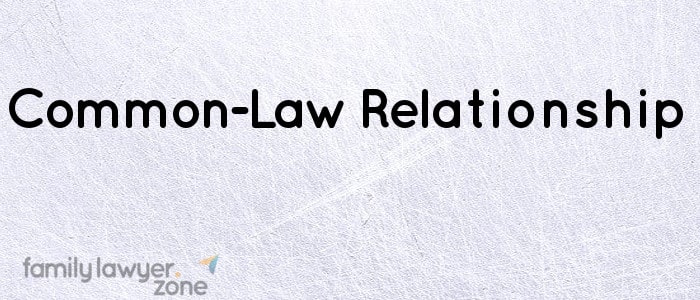
What is a common-law relationship?
A common-law relationship, also called a “de facto” union, is when you and your partner live together and present yourselves publicly as a couple but you are not married or in a civil union.
In the event of a breakdown of your relationship, the laws applicable to married couples or those in a civil union will not apply to you.
In a way, this may sound as if it’s a better legal position to be in when dealing with a breakup.
However, this may be a false perception.
Unlike married couples, you do not need to go to Court to formalize your separation.
Legal protection?
However, common-law couples do not have the same level of protection as married couples do when it comes to division of property for example.
Since the rules of the family patrimony does not apply to common-law couples separating, then, there is no obligation to divide the value of the family residence equally although both may have contributed towards the expenses.
Example of inequity during breakup
For example, a couple buys a condo and one leaves the cash down payment and qualifies for the mortgage, while the other one was unemployed.
So naturally, the condo will be in the name of one spouse who was able to qualify for the mortgage.
However, during their relationship, the unemployed spouse finds a good job while the other one loses his or her job.
In this case, the spouse who does not own the condo ends up paying nearly all the condo expenses and mortgage payment.
Upon separation, the legal owner of the condo is the spouse that did not contribute anything and this will result in an important inequity.
If the couple were married, then, automatically, the law would have required that the value of the property be divided equally between the couple, a situation much more equitable than for the common-law couple.
Separation agreement
As common-law couples, in the event you separate, you can agree to sign a separation agreement that will outline the manner that you will handle the division of your property and manage your children.
Cohabitation agreement
What’s a cohabitation agreement?
One way common-law couples or de facto spouses can protect themselves and prevent significant challenges, legal expenses and time loss when separating and dealing with issues such as division of property and other is to sign a cohabitation agreement.
The cohabitation agreement or a common-law contract will deal with matters such as division of property and parenting arrangements after separation.
What’s in a cohabitation agreement?
The couple can agree on any point that is important for them so long as it does not go against the law.
A typical cohabitation agreement is one where the common-law couple will determine the following:
- How will each contribute towards the expenses of the couple
- Identify the property that each will contribute to the relationship
- Identify how they will each manage the debts or liabilities they bring into the couple
- How to divide property upon separation
- How to divide liability upon separation
- Define the percentage that each will contribute towards major expenses for the couple
The couple can decide on any topic that is important for them and so the cohabitation agreement is quite flexible.
Lawyer helping with your contract
You can write the cohabitation agreement yourself and sign it as a couple or you can consult with a lawyer or a notary to help you draft a good cohabitation agreement.
Generally, it is a good idea to have the agreement professionally drafted so you can ensure the proper intention is conveyed and that there is little or no room for interpretation as to your rights and obligations when you separate.
Children’s rights
If you have children, the law applies automatically to your parenting rights and obligations.
As a result, if you are unable to reach an agreement on the best parenting time and arrangement, the Court can provide you rulings on child support and parenting orders (custody and access rights).
9- Property division
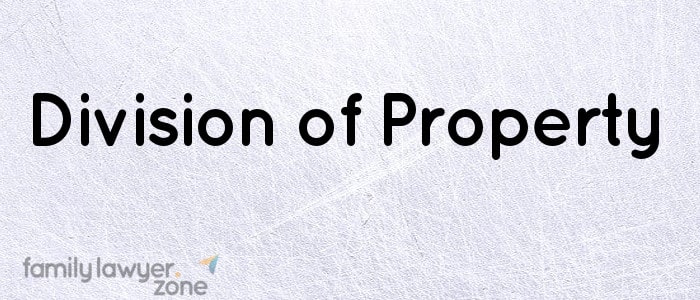
Family patrimony
What is the family patrimony?
Married couples or those united under the civil union regime are subject to the rules of the family patrimony.
For the sake of this section, everything we say about married couples will apply the same way to those civil union spouses.
Article 414 of the Civil Code of Quebec states that marriage entails the establishment of a family patrimony consisting of certain property of the spouses regardless of which spouse owns that property.
This is a significant protection offered to married couples
What is the family patrimony composed of?
The family patrimony is composed of the following property:
- the residences of the family or the rights which confer use of them
- the movable property with which they are furnished or decorated and which serves for the use of the household
- the motor vehicles used for family travel, and
- the benefits accrued during the marriage under a retirement plan
- the registered earnings, during the marriage, of each spouse pursuant to the Act respecting the Québec Pension Plan
The family patrimony therefore includes only very specific assets, as listed above.
What does the family patrimony not include?
The family patrimony does not include the following property:
- Gifts before or during the marriage
- Inheritances
- Any other assets that is not specifically mentioned to be included in the family patrimony
When is the family patrimony established?
The family patrimony is formally established as of the day of the marriage.
Therefore, the property that you owned or debts you had incurred prior to the date of marriage is not included in the family patrimony.
How do we divide the family patrimony?
Dividing the family patrimony is pretty simple.
As of your separate date, you should identify the following assets:
- Family residence
- Furniture in family residence
- Secondary residence
- Furniture in your secondary residence
- Vehicles and automobiles used by the family
- RRSP’s or registered retirement saving plans
- Pension plans
- Registered earnings under the RRQ or Régie des rentes du Québec
You deduct the value of the same property as of the marriage date, the value of any gifts and inheritances used to purchase these properties along with capital gains or losses.
If you’ve acquired all the family patrimony assets during your marriage, the calculation can be quite simple.
However, if you’ve had assets prior to marriage, received inheritances or gifts during marriage, invested and reinvested in different types of property during your marriage, then, it may be worthwhile consulting with a lawyer to better understand the value of your family patrimony.
Can you contractually change the terms of the family patrimony?
The rules of the family patrimony will apply to you regardless of any contracts you may have signed or any agreements you may have reached prior to your divorce application being filed.
The rules of the family patrimony can therefore not be overridden by the agreement of the spouses even though you thought the agreement was fair at the time it was concluded.
On the other hand, after the divorce application is officially filed, you can agree on the terms of the family patrimony with your spouse, however, if the Court considers that the agreement is not favourable to a party, the Court may refuse to ratify your agreement.
It is therefore important to ensure that you reach an agreement on the terms of the family patrimony in such a way that when you consider the division of all of your assets, there appears to be equity in the partition.
Matrimonial regimes
The matrimonial regime is a set of rules that will apply to married couples governing how your assets and property will be divided except for those governed by the rules of the family patrimony.
It must be noted that there are no matrimonial regime that will override or impact the assets subject to the rules of the family patrimony.
In other words, if you have assets other than a family residence, furniture, automobiles used by the family, RRSP’s and pension plan, then all remaining assets, such as money in bank account, investments, businesses, or anything else, will be divided based on the rules of your matrimonial regime.
There are three types of matrimonial regimes that can apply to you, they are:
- Partnership of acquests
- Separation as to property
- Community to property
Partnership of acquests
What is a partnership of acquests regime?
The matrimonial regime of partnership of acquests is the default regime applicable to a married couple if they do not specifically select their matrimonial regime through a marriage contract.
Property qualification
Under this regime, your property will be divided in two categories:
- The acquests
- Private property
Acquets
The acquests are property that will be shared and divided between the spouses.
These are generally property that was acquired during the marriage or with income earned during the marriage by the spouses.
A property that cannot be specifically proven to be a private property will be deemed an acquests and thus subject to division between the spouses.
Private property
The private property is a property that you typically held prior to your marriage or other type of personal property or income such as support payments or disability pensions.
The law also declares some property as a private property such as:
- Your clothing
- Personal documents
- Wedding ring and alliance
- Instruments and property you use for work
- Personal retirement annuity
- Property you received by inheritance or as a gift
How are the assets divided?
Spouses subject to the matrimonial regime of partnership of acquests will need to divide their acquests equally and will each keep their private property.
Separation as to property
Separation as to property is a matrimonial regime where each spouse will retain the ownership of the property in his or her name whether acquired before the marriage or after.
Separation as to property is not a default regime that will be applicable to the spouses.
In other words, the only way that this matrimonial regime can be adopted is through a marriage contract.
When signing a marriage contract, the spouses can mutually agree on the separation as to property to be applicable to the spouses in the event of a divorce.
Community of property
The matrimonial regime of community of property was the default regime applicable to married couples who got married without a contract prior to July 1, 1970.
Under this regime, your property will be divided in three categories:
- Community property
- Private property
- Reserved property
In the event of a separation and divorce, if you are subject to the matrimonial regime of community of property, each spouse will remain the owner of their private property and will equally divide the reserved property and community property.
Under this regime, the wife may keep her reserved property by renouncing her share in the community property.
The wife may also renounce to the community property if the net value is negative.
This matrimonial regime is not commonly seen and thus if you are subject to this regime, it is recommended that you speak with a lawyer who fully understands the dynamics of this matrimonial regime.
10- Spousal support

What is spousal support?
Spousal support is a sum of money that one spouse will be ordered to pay the other spouses in the context of a legal separation, dissolution of a civil union or divorce.
Spousal support under Divorce Act
If the Court orders spousal support to be paid in the context of a divorce, then, the applicable law governing the ordering of the spousal support will be the Divorce Act.
Article 15.2(1) of the Divorce Act states that a Court may make an order requiring a spouse to secure or pay periodic payments or a lump sum to the other spouse as the Court thinks reasonable for the support of the other spouse.
Spousal support under legal separation
If spousal support is ordered to be paid in the context of a legal separation or dissolution of civil union, then the governing law will be the Civil Code of Quebec.
Under article 511 of the Civil Code of Quebec, the Court, when granting a separation from bed and board, may order either spouse to pay support to the other.
Spousal support under civil union
Under article 521.17 of the Civil Code of Quebec, the Court may order one civil union spouse to pay support to the other.
Factors to consider
Under the Divorce Act, there are certain factors that the Court must consider in awarding spousal support.
These factors are:
- the length of time the spouses cohabited;
- the functions performed by each spouse during cohabitation; and
- any order, agreement or arrangement relating to support of either spouse.
The law also specifically excludes the misconduct of a spouse when order spousal support.
In other words, the Court cannot order a spouse to pay more spousal support as a sort of punishment for a marital misconduct of any kind.
Spousal support not automatic
Spousal support is not awarded automatically by the Court similar to child support and therefore must be requested.
The spouse asking for spousal support must present an income statement showing his or her income and expenses so that the Court can appreciate the financial needs.
11- Compensatory Allowance
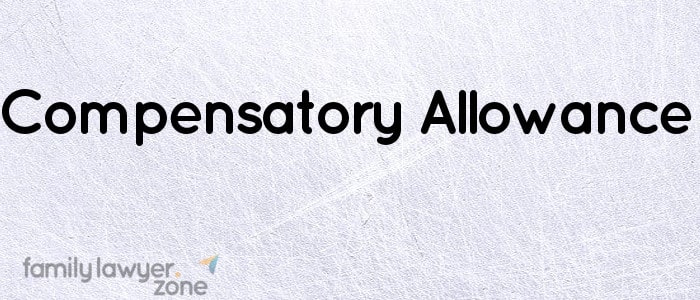
What is compensatory allowance?
Compensatory allowance is a sum of money that the Court orders a spouse to pay the other spouse for his or her contribution to the enrichment of the other during the marriage.
Article 427 of the Civil Code of Quebec states that:
The court, in declaring separation from bed and board, divorce or nullity of marriage, may order either spouse to pay to the other, as compensation for the latter’s contribution, in property or services, to the enrichment of the patrimony of the former, an allowance payable all at once or by instalments, taking into account, in particular, the advantages of the matrimonial regime and of the marriage contract.
Compensatory allowance is therefore a contribution in property or service that contributed to enrich the patrimony of one spouse to the detriment of the other.
Example of when compensatory allowance can be awarded
For example, consider that while a spouse was travelling for most part of the year and the other spouse stayed home to take care of the children with special needs and was prevented from pursuing a career or further education.
In this case, if the travelling spouse’s patrimony is enriched to the detriment of the other, the Court can grant a compensatory allowance award, upon demand, to reach a more equitable outcome.
The objective of compensatory allowance is to compensate a loss of one spouse suffered at the expense of the enrichment of the other.
This is different from using compensatory allowance to achieve a partition of assets that we do not consider suitable.
Contributing to the enterprise of the other spouse
Compensatory allowance can also be awarded when a spouse has contributed to the business of the other and within which he or she does not have any shares or ownership.
The typical scenario is when a spouse starts a business while the other spouse helps with answer calls, doing accounting work and managing the operations of the company.
As the business grows, the spouse owning the business will reap all the benefit of the increased business value and does not compensate the other in any way.
The Court can consider that, depending on the value of the business and extent of the other spouse’s support, a compensatory allowance award is necessary to compensate for the proportionate enrichment of one spouse to the detriment of the other.
12- Parenting rights (custody and access rights)
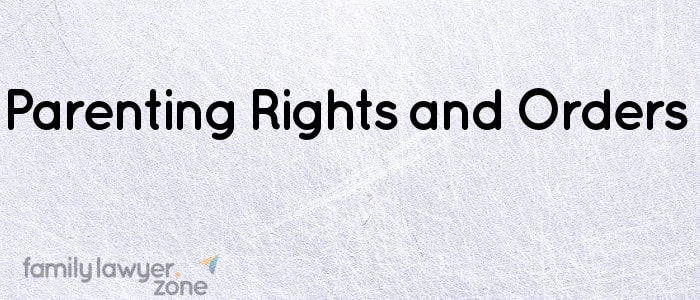
Parenting rights and obligations are some of the most difficult and sometimes most contentious factors in a family law case.
As parents, we want what’s best for our children but at the same time we must deal with an ex-partner with whom our relationship has broken down.
This can be quite challenging and to a certain extent highly emotional for the parents.
At the end of the day, if the parents are unable to reach a mutual agreement on the parenting time and arrangement, custody and access rights, then the Court will need to render a judgment.
The Courts have developed rules and principles based on law and jurisprudence that will help them guide their decision when involving children.
Parental authority
Regardless of the parenting order and parenting time, both parents must consult with one another to make important decisions in the life of their children.
This concept is called parental authority.
Article 600 of the Civil Code of Quebec states that the father and mother exercise parental authority together.
In case of difficulty, the person having parental authority may refer the matter to the Court who will decide in the interest of the child after fostering the conciliation of the parties, as dictated by article 604 of the Civil Code of Quebec.
What does parental authority involve?
Parental authority will typically involve major decisions regarding a child, such as:
- Medical treatments
- Overall health of the child
- Religious teachings
- Education and choice of school
- Place of residence
Interest of the child
As required by the Civil Code, all decisions concerning a child must be made in his or her best interest.
In other words, the Court will consider the child’s intellectual, emotional and physical needs when making a decision concerning the child.
Parenting order
The Court will also decide as to the parenting time (custody and access rights) in the best interest of the child.
The Court’s role will be to render a custody and access rights judgment that will foster the best development of the child, considers the child’s age, medical needs, family environment and any other important aspects in the life of the child.
Sometimes, this exercise can be difficult and the Court will request, or the parties will request, an expert opinion from a psychosocial expert or psychologist.
Agreement by parents
When the parents are able to mutually agree and decide what’s best for their child is in most cases ideal as the parents will implement and agree on an arrangement they both can live with.
When the Court renders a judgment, a parent may feel that his or her position was not properly understood by the Court and the court judgment is therefore not ideal.
This is the risk that you face when you leave a third party, essentially a judge, render a judgment concerning your children.
Custody under the Civil Code of Quebec
Article 599 of the Civil Code of Quebec states that the father and mother have the rights and duties of custody, supervision and education of their children.
The parents must also maintain their children.
13- Child support

If you have a child with our spouse or partner, whether you are married or in a common-law relationship, you are required by law to ensure the financial needs of your child.
Child support is an amount of money paid by one parent to the other to contribute towards the financial needs of a child after break up.
The law further defines the rules to calculate child support.
There are two guidelines that can apply for child support calculation.
There are the guidelines established by the Quebec government and they will apply if both parents live in Quebec.
There are also the federal guidelines that they will apply if one parent lives outside of Quebec and in another Canadian province.
The purpose of child support is to provide for your child’s basic needs.
The law considers the child’s basic needs to be:
- food
- shelter
- communications
- Household expenses
- personal hygiene
- clothing
- furnishings
- transportation
- leisure activities
Child support payments are not taxable whereby the parent receiving child support will not be taxed on this income and the parent paying child support will not deduct it from his or her income.
14- Family mediation

Family mediation is a process through which separating couples can work through and agree on issues relating to their divorce, children or any other point of contention.
Through mediation, the separating couple will benefit from the services of a mediator who is a professional trained to help couples who disagree to eventually reach a mutually satisfying agreement.
Family mediation is a voluntary process and therefore if you do not believe that you can reach an agreement, you are not compelled to continue with the process.
The family mediation process is not a couple’s therapy session for saving your marriage.
Mediation is a process where the mediator assumes that you and your spouse have formulated that definitive intention in separating and is there to help you work through the consequences of your separation.
A couple’s therapy is on the other hand a session where you are working on your relationship problems in an attempt to save and work on your relationship.
The objective is very different and it must be clear when spouses engage in mediation.
During the mediation process, the mediator will facilitate the proper communication between the spouses, making sure everyone is properly heard and treated equally and the couple put the needs of their children first as opposed to taking revenge.
During family mediation, the spouses will need to come to a final decision on the consequences of their divorce or separation as the mediator does not have the power to impose a decision on the couple.
The mediator does not represent one party nor will give legal advice to one or the other.
The mediator will always remain neutral and ensure a fair process.
If the mediation is successful, the spouses can essentially reach an agreement on all the points in dispute and the mediator will write a report on that.
If the mediation is not successful, then the spouses will typically consult a lawyer and pursue their case legally through the Courts.
15- Hiring a lawyer

Do I need a lawyer to represent me in Court?
No, you do not absolutely need a lawyer to represent you in Court.
In many cases, when confronted with a divorce, legal separation or a family law case, the first place where you will go is to do some research online to understand the basics of your case.
If your case is simple, then you may be inclined to handle it yourself and self-represent in Court.
On the other hand, if your case is complex or that you do not have the inclination or motivation to handle it yourself, then you are better off hiring a divorce lawyer or family law lawyer to guide you and assist you in your case.
If I hire the best divorce lawyers, how much will the divorce cost me?
If you hire the best divorce lawyer, you should expect to pay legal fees that will be more than handling it yourself or hiring an inexperienced junior lawyer.
In most cases, we pay for what we get.
You can have a divorce lawyer that can charge you rates under $100 per hour or propose a fixed rate that looks very attractive.
The caveat is that you are probably paying a lawyer who does not have experience or is not capable of handling more challenging types of cases in Court.
You may save in areas where the intellectual complexity of the file is low but you will pay dearly when the complexity is higher or speed of execution is crucial.
According to Canadian Lawyer Magazine’s 2015 report, the median hourly rate for a divorce lawyer in Quebec is between $184 to $331 per hour.
The best divorce lawyer can also command hourly rates upwards of $550 to $600 per hour.
Our recommendation is that you consult with a few experienced divorce lawyers so that you can get their rates and service fee.
This way, you can then compare apples to apples and determine which lawyer will be the best divorce lawyer for you.
How do I find a good divorce lawyer?
To find a good divorce lawyer, you can speak with your family and friends to see if someone can give you a reference.
In most cases, even if you get a reference, you will still need to speak with that person and determine if that lawyer will have the right skills and competencies suitable for your case.
Working with a lawyer is quite personal and so a good lawyer for one person may not necessarily be viewed as a good lawyer for another.
If you do not want to share your family situation with your friends and family, the next step is to look online for a good divorce lawyer.
There are many lawyers out there and many law firms each touting to be the best to do the job for you.
We recommend that you read up on divorce or the family law issues you are faced with so that you have a baseline knowledge of the issue at hand.
This way, you can contact the different lawyers out there and be able to have a specific and targeted conversation about your issues and what you may be looking for.
Reading a guide like this one is a great first step to start your online research on the topic of divorce and its consequences.
If you are unable to find a good lawyer online, then, you can reach out to provincial referral services generally handled by the local Bar Association.
In Quebec, JurisRéférence offers referral services if you are looking to find a lawyer, a mediator or if you are dealing with small claims issues.
How do I select a top family attorney?
Once you have contacted different lawyers, you are now in a position to select the top family attorney who will accompany you in your Court journey.
The person that you will hire will need to understand your case, be creative and legally intelligent, have the ability to devise strategies and plans to help you achieve your goals and most importantly, you must have confidence that he or she will be able to get the job done.
In many cases, the actions of the lawyer speak for itself.
If you see your lawyer operating in an organized, structured and tactical way, you can then expect an outcome that will be commensurate with such a work ethic.
On the other hand, if your lawyer is overwhelmed, constantly late and doing things last minute to be able to get by, then, you will probably see results that will also be commensurate with that type of work ethic.
There are always exceptions to the rule and you can have a disorganized lawyer always late who can be the best lawyer in town or you can have an organized lawyer who constantly misses the mark.
However, as a general rule, you can consider your lawyer’s work ethics and organization to be a tell-tale sign of the quality of services you are getting.
Conclusion
We hope that this divorce guide was useful to you steering you in the right direction.
At our law firm, we value our customers and strive to ensure they get the most value possible.
As a result, we wanted to make this guide available to you free of charge so that you can use it as you see appropriate.
At our family law firm, we offer a full range of legal services in the area of family law.
Should you need legal advice, consultation services or legal representation in Court, you can count on us for that.
We have senior lawyers with significant experience in family law and litigation along with more junior lawyers who are young, vigorous and passionate.
We leverage the experience of our senior associates and our younger associates to ensure the perfect balance of experience, speed of execution and cost management is provided to you as we handle your case.
It will be our pleasure to assist you should you feel necessary.
You can contact us at any time.
Good luck in your divorce matter and we hope to be able to work with you.
FamilyLawyer.Zone



